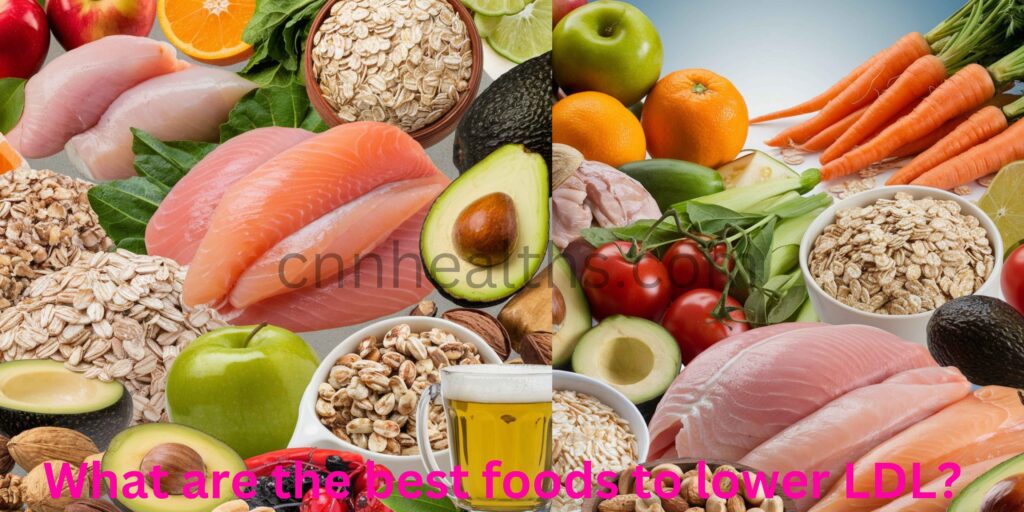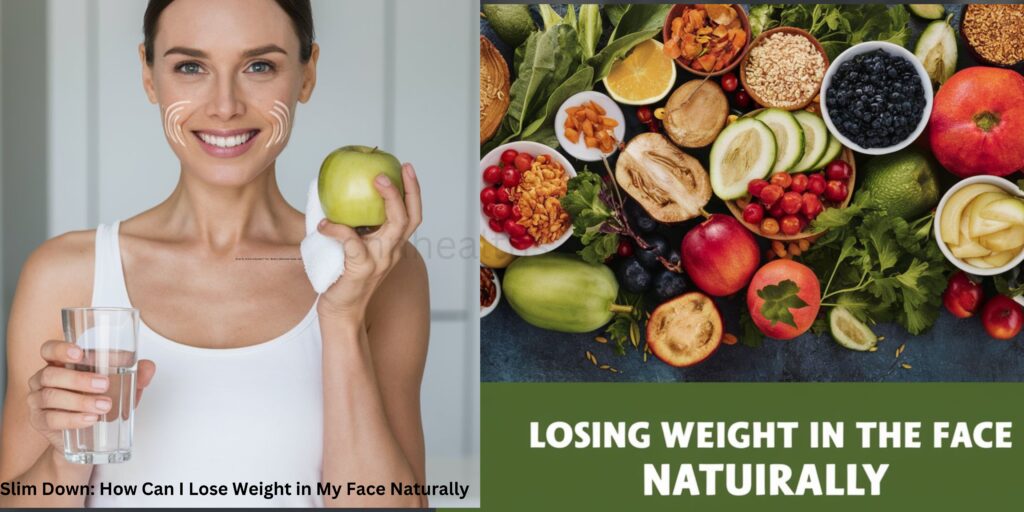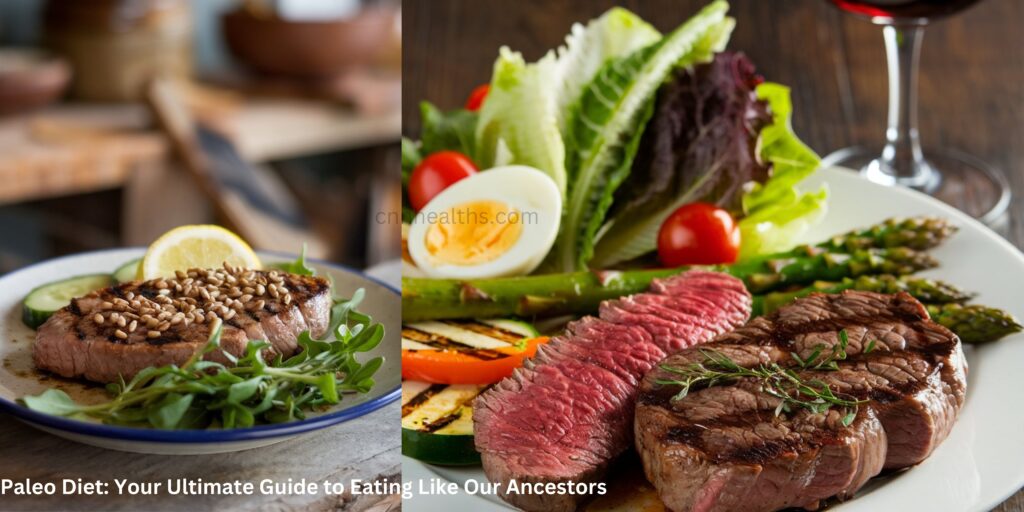Healthy Choices: What Are the Best Foods to Lower LDL?
Intro
When it comes to managing cholesterol levels, particularly LDL or “bad” cholesterol, making informed food choices can have a significant impact on your health. You might be wondering, what are the best foods to lower LDL? The good news is that a variety of delicious and nutritious options can help you achieve your cholesterol goals. Incorporating foods rich in soluble fiber, healthy fats, and antioxidants into your diet not only promotes heart health but also makes meals more enjoyable. From vibrant fruits and vegetables to whole grains and heart-healthy fats like olive oil and avocados, the choices are both flavorful and beneficial. Join us as we explore these wholesome options that can lead to a healthier lifestyle and help you take control of your cholesterol levels in a tasty way!

The Role of Fiber-Rich Foods in Lowering LDL
One of the most effective ways to lower LDL cholesterol is by including fiber-rich foods in your diet. But what are the best foods to lower LDL with fiber? Soluble fiber, in particular, has a unique ability to bind cholesterol in the digestive system, preventing its absorption into the bloodstream. This natural process helps reduce overall LDL levels. Foods like oats, barley, beans, lentils, and various fruits such as apples and citrus are excellent sources of soluble fiber.
When you start your day with a bowl of oatmeal or snack on an apple, you’re not just satisfying your hunger—you’re also making a heart-healthy choice. Whole grains like quinoa and brown rice also provide a hearty dose of fiber, contributing to lower LDL cholesterol. Vegetables such as broccoli, Brussels sprouts, and sweet potatoes not only add variety to your meals but also pack a fiber punch. Incorporating these fiber-rich foods into your daily routine can be both simple and delicious, making it easier to manage your cholesterol levels naturally.
Benefits of Healthy Fats from Nuts and Seeds
Nuts and seeds are not just crunchy snacks; they are also excellent sources of healthy fats that can help lower LDL cholesterol. You might be asking, what are the best foods to lower LDL in this category? Almonds, walnuts, flaxseeds, and chia seeds are top choices. These nutrient-dense options are rich in monounsaturated and polyunsaturated fats, which play a crucial role in improving heart health by reducing bad cholesterol levels.
Including a handful of almonds in your daily routine or adding ground flax seeds to your morning smoothie can make a significant difference. Walnuts, in particular, are packed with omega-3 fatty acids, which further contribute to lowering LDL levels. Even tiny seeds like chia and flax are powerful allies in your quest for better heart health. They not only provide healthy fats but also offer fiber and protein, enhancing their cholesterol-lowering benefits.
By incorporating a variety of nuts and seeds into your meals and snacks, you can enjoy their tasty crunch while supporting your heart health. So next time you’re thinking about what are the best foods to lower LDL, don’t forget to reach for a handful of these nutritious options!
Power of Plant Sterols and Stanols in Cholesterol Management
Plant sterols and stanols are naturally occurring compounds found in plants that have a powerful ability to lower LDL cholesterol. If you’re curious about what are the best foods to lower LDL with these compounds, look no further than fortified foods and certain plant-based options. Sterols and stanols work by blocking the absorption of cholesterol in the digestive system, effectively reducing overall LDL levels in the bloodstream. Foods like fortified margarine, orange juice, and yogurt are often enriched with plant sterols and stanols, making them convenient options to incorporate into your daily diet. Additionally, nuts, seeds, and vegetables contain these beneficial compounds in smaller amounts. When you choose products fortified with plant sterols and stanols, you’re taking an active step toward better heart health. These cholesterol-busting compounds seamlessly fit into various meals, from a morning spread on toast to a refreshing glass of orange juice. So the next time you’re pondering what are the best foods to lower LDL, remember to include those enriched with plant sterols and stanols for an added boost to your cholesterol management strategy.
Impact of Omega-3 Fatty Acids from Fish
Omega-3 fatty acids, found abundantly in fish, are another potent ally in lowering LDL cholesterol. These essential fats are particularly effective in promoting heart health by reducing inflammation and improving overall cholesterol balance. Salmon, mackerel, sardines, and trout are some of the best sources of omega-3 fatty acids. Including these types of fish in your diet a couple of times a week can provide a significant boost to your heart health efforts. Additionally, omega-3 fatty acids have been shown to raise HDL or “good” cholesterol levels while lowering triglycerides, adding another layer of cardiovascular protection. For those who aren’t fans of fish, fish oil supplements can be an alternative, although it’s always best to get nutrients directly from food when possible. Cooking fish can be both simple and flavorful, whether you prefer grilling, baking, or steaming. Incorporating omega-3-rich fish into your meals not only supports your quest for lower LDL levels but also adds a delicious variety to your diet.
Advantages of Including Fruits and Vegetables
Fruits and vegetables are essential for a heart-healthy diet, offering a wealth of vitamins, minerals, and antioxidants that can help lower LDL cholesterol. Vibrant choices like berries, oranges, and leafy greens are packed with antioxidants, which help combat oxidative stress and inflammation, both of which are linked to higher cholesterol levels. Apples and pears, rich in soluble fiber, also contribute to lowering LDL by preventing cholesterol absorption in the digestive system.
Vegetables such as spinach, kale, and carrots provide not only fiber but also important nutrients like potassium and folate, which support overall cardiovascular health. By adding a colorful array of fruits and vegetables to your meals, you can enhance their flavor and nutritional value. Try incorporating berries into your breakfast, snacking on carrot sticks with hummus, or enjoying a hearty salad loaded with a variety of greens and colorful veggies.
These natural, nutrient-dense foods not only aid in managing cholesterol but also support overall well-being, making them an indispensable part of a balanced diet.
Choosing Whole Grains Over Refined Grains
When it comes to managing cholesterol levels, opting for whole grains over refined grains is a smart choice. Whole grains retain all parts of the grain, including the bran, germ, and endosperm, which means they are packed with more fiber, vitamins, and minerals compared to their refined counterparts. Foods like brown rice, whole wheat bread, quinoa, and barley are excellent examples of whole grains that can help lower LDL cholesterol. These grains help reduce cholesterol absorption in the digestive system, contributing to better heart health. On the other hand, refined grains like white bread, white rice, and sugary cereals have been stripped of many beneficial nutrients, offering less nutritional value and fiber. Making the switch to whole grains can be as simple as choosing whole wheat pasta instead of regular pasta or enjoying a quinoa salad instead of a white rice dish. Whole grains not only support heart health but also provide a sustained source of energy, keeping you fuller for longer and making your meals more satisfying. By incorporating more whole grains into your diet, you take an active step toward better cholesterol management and overall well-being.
Incorporating Legumes for Heart Health
Legumes, including beans, lentils, chickpeas, and peas, are a powerhouse of nutrients that contribute significantly to heart health. These versatile foods are rich in soluble fiber, which plays a key role in lowering LDL cholesterol by binding to cholesterol in the digestive system and preventing its absorption. Legumes also provide plant-based protein, making them an excellent alternative to meat, which can be higher in saturated fats. Adding legumes to your diet is simple and delicious—think hearty lentil soups, chickpea salads, or black bean tacos. Not only do these dishes offer diverse flavors and textures, but they also keep you feeling full and satisfied longer due to their high fiber content. Legumes are also packed with antioxidants, vitamins, and minerals such as magnesium and potassium, which support overall cardiovascular health. Whether you’re looking to lower your LDL levels or simply add more nutritious options to your meals, incorporating legumes is a smart and tasty choice for a heart-healthy diet.
The Role of Healthy Cooking Oils
When it comes to cooking, the oils you choose can make a significant difference in managing LDL cholesterol levels. Healthy cooking oils, such as olive oil, avocado oil, and canola oil, are rich in monounsaturated and polyunsaturated fats, which help reduce bad cholesterol and promote heart health. Olive oil, in particular, is a staple of the Mediterranean diet, known for its cardiovascular benefits. This versatile oil can be used for sautéing vegetables, dressing salads, or even drizzling over whole grain bread. Avocado oil, with its mild flavor and high smoke point, is perfect for frying or grilling, ensuring that your meals remain heart-healthy even at higher temperatures. Canola oil, another excellent option, is low in saturated fat and can be used for baking or stir-frying. By opting for these healthy oils instead of those high in saturated or trans fats, such as butter or palm oil, you can make a positive impact on your cholesterol levels. Simple swaps in your cooking routine can lead to delicious, heart-healthy meals that support your goal of lowering LDL cholesterol.

